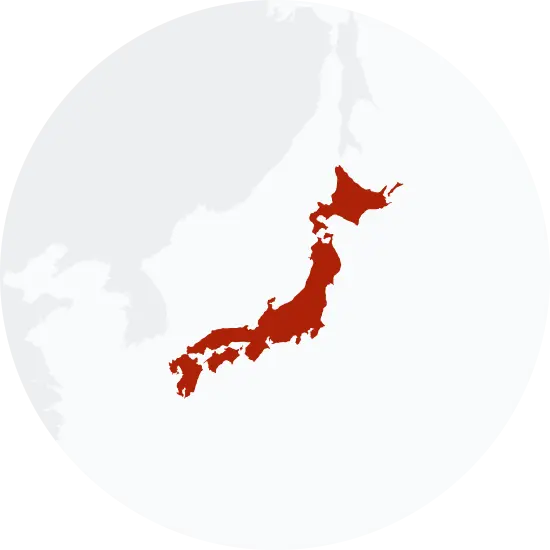Explore the Family Name Ikeda
How common is the last name Ikeda in the United States?
Based on the Decennial U.S. Census data, the surname Ikeda has seen a slight decrease in popularity over the last decade. In 2000, it was ranked as the 11,200th most popular surname but dropped to the 11,716th position by 2010, marking a negative change of 4.61%. However, the actual number of people carrying the Ikeda surname increased from 2,595 to 2,675 during this same period. This represents an increase of 3.08%, albeit the proportion per 100,000 people decreased by 5.21%.
| 2000 | 2010 | Change | |
|---|---|---|---|
| Rank | #11,200 | #11,716 | -4.61% |
| Count | 2,595 | 2,675 | 3.08% |
| Proportion per 100k | 0.96 | 0.91 | -5.21% |
Race and Ethnicity of people with the last name Ikeda
As for the ethnic identity associated with the surname Ikeda, changes were also observed between 2000 and 2010 according to the Decennial U.S. Census. The majority of individuals with the Ikeda surname identified as Asian/Pacific Islander; however, its percentage dropped from 85.20% in 2000 to 79.40% in 2010. Notably, there was a significant increase in the number of individuals identifying with two or more races, up by 61.06% from 6.78% to 10.92%. Additionally, there was a modest increase in those identifying as White (from 5.74% to 6.32%) and Hispanic (from 2.12% to 3.14%). There were negligible changes in those identifying as Black or American Indian/Alaskan Native.
| 2000 | 2010 | Change | |
|---|---|---|---|
| Asian/Pacific Islander | 85.2% | 79.4% | -6.81% |
| Two or More Races | 6.78% | 10.92% | 61.06% |
| White | 5.74% | 6.32% | 10.1% |
| Hispanic | 2.12% | 3.14% | 48.11% |
| Black | 0% | 0.22% | 0% |
| American Indian and Alaskan Native | 0% | 0% | 0% |
Ikeda ancestry composition
23andMe computes an ancestry breakdown for each customer. People may have ancestry from just one population or they may have ancestry from several populations. The most commonly-observed ancestry found in people with the surname Ikeda is Japanese, which comprises 64.3% of all ancestry found in people with the surname. The next two most common ancestries are British & Irish (10.5%) and Chinese (6.1%). Additional ancestries include French & German, Filipino & Austronesian, Italian, Korean, and Spanish & Portuguese.
Ready to learn more about your ancestry? Get the most comprehensive ancestry breakdown on the market by taking our DNA test. Shop 23andMe
| ANCESTRY BREAKDOWN | COMPOSITION |
|---|---|
| Japanese | 64.3% |
| British & Irish | 10.5% |
| Chinese | 6.1% |
| Other | 19.1% |

Possible origins of the surname Ikeda
Your DNA provides clues about where your recent ancestors may have lived. Having many distant relatives in the same location suggests that you may all share common ancestry there. Locations with many distant relatives can also be places where people have migrated recently, such as large cities. If a large number of individuals who share your surname have distant relatives in a specific area, it could indicate a connection between your surname and that location, stemming from either recent ancestral ties or migration.
Based on 23andMe data, people with last name Ikeda have recent ancestry locations in Japan and the United Kingdom of Great Britain and Northern Ireland.
| RECENT ANCESTRY Location | Percentage |
|---|---|
| Hiroshima Prefecture, Japan | 61.70% |
| Okinawa Prefecture, Japan | 53.20% |
| Tokyo, Japan | 46.80% |
| Kagoshima Prefecture, Japan | 28.70% |
| Kumamoto Prefecture, Japan | 28.70% |
What Ikeda haplogroups can tell you
Haplogroups are genetic population groups that share a common ancestor on either your paternal or maternal line. These paternal and maternal haplogroups shed light on your genetic ancestry and help tell the story of your family.
The top paternal haplogroup of people with the surname Ikeda is O-F2415, which is predominantly found among people with East Asian & Indigenous American ancestry. Haplogroup O-F2415 is descended from haplogroup O-M1359. Other common haplogroups include E-M183 and O-F2859, which are predominantly found among people with European and East Asian & Indigenous American ancestry.
The most common maternal haplogroups of people with Ikeda surname are: A, B4, H. These most commonly trace back to individuals of European ancestry.
 Paternal Haplogroup Origins O-M1359
Paternal Haplogroup Origins O-M1359
Your paternal lineage may be linked to the Cham
One of the many populations harboring members of haplogroup O1b1a1a1a1 is the Cham ethnic group, a group of people who speak Austronesian languages in Mainland Southeast Asia. Austronesian languages make up a language family that is extremely large and widespread, comprising over 350 million people on islands such as Madagascar, Easter Island, and many others. However, Austronesian languages are less common on mainland Asia, with a notable exception being the Chamic language. Research suggests that ancestors of the Cham people migrated from Southeast Asian islands to the mainland around the year 500 BCE, and that early Cham populations quickly began mixing with indigenous southern Vietnamese populations. As a result, the Chamic language now has words that were borrowed from languages spoken by indigenous Vietnamese people. It is likely that an ancestral Kinh population was one of the populations that mixed with the Cham people shortly after their migration to mainland Asia.
Your maternal lineage may be linked to the Han
Members of haplogroups B4 and B5 are quite frequent in both northern and southern Han Chinese populations. The Han people, who all share the same language and similar cultural practices, are the largest ethnic group in the world, with about 1.2 billion people. Historical evidence shows that Han people are descendants of the ancient Huaxia tribes that come from northern China, centered in Zhongyuan, China's Central Plain. The spread of Han people, language and culture from northern to southern China only occurred in the last 2,000 years, and was likely driven by warfare and famine in the north.

What do people with the surname Ikeda have in common?
Spoiler alert: it's complicated. People with the same last name are usually no more genetically similar than a randomly sampled group of people from the same population. That said, people with the same surname are more likely to have similar ancestries than randomly sampled individuals. The reason is the tendency of people with similar cultural or geographical backgrounds to preferentially mate with one another. That's why people who share a surname may be more likely to share traits and tendencies in common than people within the general population. Check out the percentages below to see the prevalences of tastes, habits, and traits of people with your surname compared with prevalences among 23andMe users.
Preferences
Traits
Habits

Vitamin Use
Takes vitamins on a regular basis.
"Ikeda" Surname 47.1%
23andMe Users 45.5%
Wellness

Migraine
A severe headache characterized by intense pain, sensitivity to light and sound, and often accompanied by nausea and vomiting.
"Ikeda" Surname 18.6%
23andMe Users 16.4%
Are health conditions linked to the last name Ikeda?
The short answer is that, if there is an association between surname and health, it's usually more about your ancestry than your name. Individuals with a given surname are no more genetically similar than the general population but often have similar ancestries. The populations of people associated with those shared ancestries often have sets of genetic variations, also known as alleles, in common. Some of those alleles are associated with a greater likelihood of developing certain diseases.
Disease variant frequency by ancestry
Disease allele frequencies in populations associated with the surname Ikeda are shown below. Important Note: not everyone with a disease allele will develop these health condition






